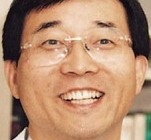 |
It has been just over 10 years since 1995, when public health professionals decided they could not stand back and do nothing while North Korean children were dying or becoming sick because of nutritional deficiency and a lack of needed pharmaceuticals, and it led them to form Medical Aid for the Children of the DPR of Korea. Many times along the way, we have seen our simple hope of helping the North’s children grow up in good health turn into annoyance, with the way the unique situation between North and South Korea makes it hard to make and maintain contact, the consistently capricious attitude taken by North Korea as a whole, and the international political situation’s influence on the group’s work. In March, the South Korean government announced it had decided to give the WHO 25 million USD, over a period of two years, to use toward the health of North Korean children. The most frequent cause of death among children in North Korea is diarrhea and acute respiratory infection. Diarrhea is something a child can recover from if it is fought early on with antibiotics and hydration, but in the North, children continue to die because they are not receiving this simple treatment. Recently, one shocking report stated that, on average, North Korean teenagers are 10 to 15 cm shorter than their South Korean counterparts. In a single generation, nutritional deficiency and disease have led to such large physical differences within the same ethnic group: one is given a sense of how horrible conditions are there. Aid for and economic cooperation with North Korea have again run into problems, this time because of the missile situation. There are some South Koreans who are angry and demand to know why we have to get "dragged around" by the North. Meanwhile, the crisis in aid for North Korea directly leads to the suffering of innocent children there. Every time the political situation changes and South Korean policy towards the North gets all tangled in the process, I find myself thinking even more of director-general Lee Jong-wook, who lived as man of the greater world, to say nothing of his ability to transcend the issues of North and South Korea. He was studying astronomy and physics for the fun of it, he once told us, and said that when issues at the WHO gave him a headache he would take a look at the ’big picture,’ remembering that hundreds of billions of years later even the sun will burn out of existence. We live in times that are in need of his kind of wisdom.





